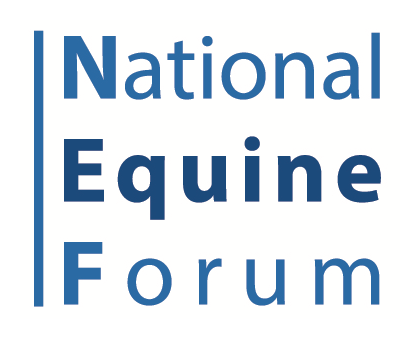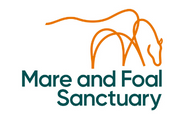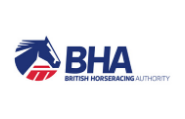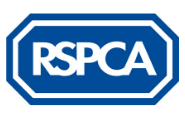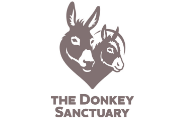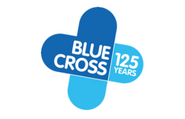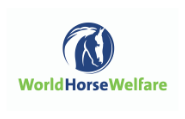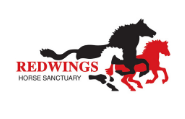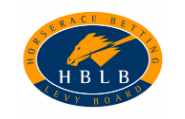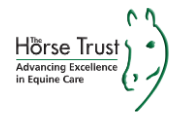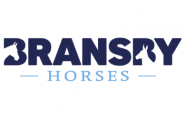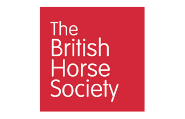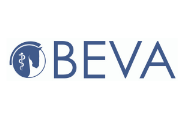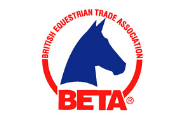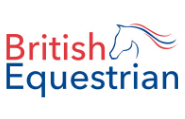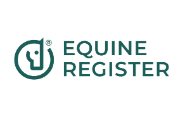The 30th National Equine Forum (#NEF22) took place on Thursday 3rd March 2022, as a hybrid event. Sessions can be found on our YouTube Channel and can be accessed through the link above.
Sessions include:
- The Equine Industry in a Changing World;
- Equestrian Safety;
- Equine Health;
- Forum review – celebrating 30 years of the National Equine Forum and a look to the future;
- Workforce Sustainability in the Equine Sector;
- Equine Anthelmintic Resistance - a collective responsibility; and
- Memorial Lecture considering breeding changes in the last 30 years.

HRH The Princess Royal
President, National Equine Forum
Click to read more ...
HRH The Princess Royal has been a keen rider since childhood. In 1973 The Princess was a member of the British team in the European Three-Day Event Championships at Kiev in the Soviet Union. Two years later, in the same contest in Germany, she won silver medals as an individual competitor and as a team member. The Princess also competed in the 1976 Montreal Olympic Games as a member of the British Three-Day Event team. She won an individual gold medal at the European Eventing Championships at Burghley in 1971, and in the same year was voted BBC Sports Personality of the Year.
After five years as President of the British Olympic Association, The Princess was elected to the International Olympic Committee and in 2005 she led the Team GB bid in Singapore. This led to London being awarded the 2012 Olympic and Paralympic Games, where she was appointed a Director of the London Organising Committee of the Olympic Games and Paralympic Games (LOCOG).
Her Royal Highness is President or Patron of some 300 organisations, including a number of equine bodies, such as the Riding for the Disabled Association, World Horse Welfare and The Horse Trust. The Princess kindly accepted the post of President of the National Equine Forum in 2009, having attended the Forum on many occasions before that.
Her Royal Highness will be providing her personal perspective on the current situation in the horse world, based on what has been presented at the Forum.

Tim Brigstocke MBE
Chairman, National Equine Forum
Click to read more ...
Tim has been Chairman of the NEF since taking over from Prof Sir Colin Spedding in 2012, and chairing his first Forum in 2013. He has spent his whole career in agriculture having worked in agribusiness, the Government's research service and administered the largest cattle breed society in the world.
Since 1999 Tim has run his own consultancy business which specialises in expert witness work. He is involved in a whole host of organisations in the land-based sector including being Treasurer of RUMA, The Responsible Use of Medicines in Agriculture and Chairman of the UK Government's Farm Animal Genetic Resources (FAnGR) expert advisory committee, which includes horses. He also chairs the biannual British Horse Council advisory meeting.
Tim will open and close the day and chair many of our sessions.
THE EQUINE INDUSTRY IN A CHANGING WORLD

The Rt Hon Lord Benyon
Parliamentary Under Secretary of State (Minister for Rural Affairs, access to nature & Biosecurity), Defra
Click to read more ...
The Rt Hon Lord Benyon was raised to the Peerage and appointed Parliamentary Under Secretary of State at the Department for Environment, Food and Rural Affairs in 2021.
Having been educated at Bradfield College and the Royal Agricultural College, Cirencester, Lord Benyon followed a career in the army, where he served with the Royal Green Jackets. He then qualified as a chartered surveyor and ran a business which included farming, forestry and the management of rural and urban housing.
Lord Benyon was Conservative MP for Newbury for 14 years as well as having been Parliamentary Under Secretary of State for Natural Environment, Water and Rural Affairs and Shadow Minister for Environment, Food and Rural Affairs and Opposition Whip during that time.
The Minister will deliver an update from UK Government on equine matters.

Martin Blake
Chief Veterinary Officer for Ireland, Department of Agriculture, Food & the Marine
Click to read more ...
Martin was made Chief Veterinary Officer (CVO) in Ireland in 2011 and he is also the delegate of Ireland to the OIE (World Organisation for Animal Health). He has policy lead responsibilities in DAFM across a range of One Health, One Welfare issues at central government. This involves a range of official controls relating to food safety, animal health, animal welfare and trade in animals and products of animal origin.
Prior to joining the Government Services, he worked in mixed practice in Cork and Galway and since joining the Department he has had numerous roles in animal health, animal welfare and veterinary public health.
Martin will provide an update on some of the topical issues such as health certification, health surveillance, Animal Health Law and equine identification current to the equine sectors in Ireland.
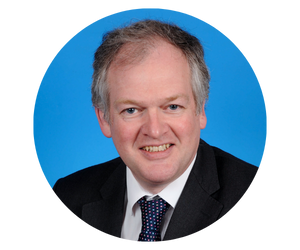
Robert Huey
Chief Veterinary Officer for Northern Ireland, Department of Agriculture, Environment & Rural Affairs
Click to read more ...
Dr Robert Huey took up the position as Chief Veterinary Officer (CVO) for Northern Ireland in 2013.
After graduating from the University College Dublin he spent five years in general mixed veterinary practice, a period in general field duties and some time in the Royal Army Veterinary Corps. Robert taught Animal Health at an agricultural college, becoming immersed in meat hygiene issues. He holds the RCVS Diploma in Veterinary Public Health and is co-author of a meat hygiene textbook.
Robert has been involved in UK and EU veterinary politics, veterinary public health and veterinary hygiene for many years, holding a number of Presidential positions. He was awarded a Fellowship from the RCVS and associate Fellowship of the Royal Agricultural Societies.
He is married with two children and six grandchildren and has a small holding of 13 acres on which he keeps horses, cattle and sheep.
Robert will speak about DAERA’s cross government steering group in Northern Ireland to implement an economic report commissioned from Deloitte, with the objective of growing the economic prosperity of the sector.
EQUESTRIAN SAFETY
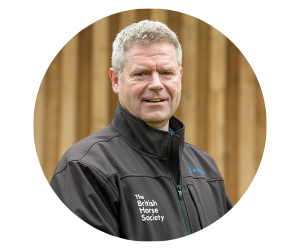
Alan Hiscox
Director of Safety, The British Horse Society
Click to read more ...
Alan Hiscox is the strategic lead for safety in the BHS. He heads the award winning ‘Dead Slow’ campaign and represents equestrians on the Parliamentary Advisory Council for Transport and Safety.
A former police officer, Alan retired as the Chief Equitation Officer for the Metropolitan Police Mounted Branch having advised police forces all over the world, presenting seminars and training events on police horse training and tactics. He led the Police Horse Display Ride for 14 years, performing at Olympia, Horse of the Year Show and abroad. He is passionate about improving the safety of horses, riders and carriage drivers on the roads.
Alan has been instrumental in developing the partnership with other vulnerable road users, thereby significantly increasing the profile of equestrians in the road safety community.
Alan will speak about how the BHS helped inform changes to the Highway Code and the development of the Horse i App in the interests of the safety of all horses on the road.
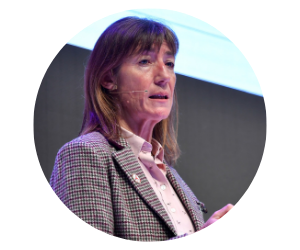
Claire Williams
Executive Director, British Equestrian Trade Association
Click to read more ...
Claire is from Christchurch, New Zealand. She worked for 10 years in Germany before moving to the UK in 2000 to take up her role with BETA, responsible for both the trade association and its commercial arm EMC Ltd.
BETA is the leading representative body working on behalf of equestrian related businesses in the UK and beyond. With over 800 member companies, BETA is recognised as the equestrian trade’s representative body by Government and leading riding organisations and is a member of British Equestrian.
The organisation offers a wide range of member benefits, lobbies on behalf of members, assists in the development of their export markets, oversees the BETA accreditation schemes for body protectors, prohibited substances and specialist feeds, promotes rider safety and offers a wide range of training courses.
Claire is a Director of the Animal Medicines Training Regulatory Authority (AMTRA), British Equestrian and British Horse Council, and serves as a technical expert on both the European body protector and hat standards committees.
In her free time Claire rides her two horses, enjoys walking and photography.
Claire will talk about BETA’s initiative to gather data following equestrian accidents, focusing on equipment worn, to help develop safety equipment in the future.
EQUINE HEALTH
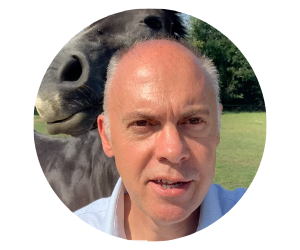
David Mountford
Chair, British Horse Council
Click to read more ...
David joined the Royal Army Veterinary Corps after graduating from Cambridge. He commanded in Cyprus and Hong Kong and served with the King’s Troop Royal Horse Artillery before leaving to join what is now World Horse Welfare, where he managed the charity’s operations and veterinary activities.
In 2003, David, together with Roger Smith from the Royal Veterinary College, set up a company developing novel veterinary therapies; around the same time he joined British Equine Veterinary Association (BEVA) Council. Having sold the veterinary business, David took on the new role of BEVA Chief Executive, where he is responsible for supporting equine vets through education, journal publication, and the provision of relevant services.
As Chair of The British Horse Council, he is involved with lobbying for and representing both the equine veterinary sector and the wider horse industry. Most of his free time is now spent as a horsebox driver/groom or tinkering with his boat.
David will deliver an update on the health-related elements of the Equine Health & Welfare Pathway.

Dr Richard Newton
Director of Epidemiology & Disease Surveillance, Equine Infectious Disease Surveillance (EIDS), University of Cambridge
Click to read more ...
After several years in general mixed practice Richard joined the Animal Health Trust (AHT), where he acquired a breadth of experience in the epidemiology, surveillance and control of a range of equine infectious diseases, including influenza, strangles and equine herpesvirus. He was the Director of Epidemiology and Disease Surveillance and Acting Director of Research at the AHT when it closed and Richard and his immediate team were retained as Equine Infectious Disease Surveillance (EIDS). This was funded by the UK Thoroughbred racing and breeding industry, initially within the British Horseracing Authority, and since November 2021 within the Department of Veterinary Medicine at the University of Cambridge.
EIDS continue to conduct global disease surveillance, issuing disease reports on an almost daily basis through the International Collating Centre (ICC) and working with UK laboratories, Defra/APHA and BEVA to generate UK specific equine surveillance reports on a quarterly basis. They still provide veterinary surgeons and industry bodies worldwide with advice on prevention strategies and management of equine infectious outbreaks.
Richard will update the Forum on EIDS, its surveillance initiatives and the key infectious disease occurrences in 2021 which posed risks to the UK horse population.
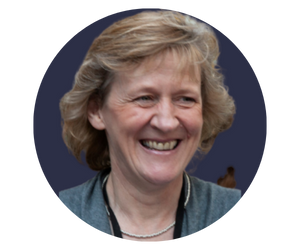
Dr Beth Wells
Principal Research Scientist & Knowledge Exchange Specialist, Moredun Research Institute
Click to read more ...
Beth studied for her PhD at Moredun, in partnership with the Royal (Dick) School of Veterinary Studies and went on to work with projects focussing on zoonotic parasites and One Health. Her interest in knowledge exchange led to her present dual role, where research interests in livestock parasites work in parallel with knowledge exchange, following her interests in the livestock, veterinary and equine industries.
When the opportunity arose to set up a team to take a fresh approach to Equine Grass Sickness (EGS) research, Beth jumped at the chance. She now leads a project investigating the causal agents and risk factors involved in disease. They have set up a national biobank of samples available for EGS research and are currently looking at research projects and funding opportunities with multi-disciplinary collaborators.
Beth has a life-long interest in all things equine, being a Highland pony breeder and keen horse rider throughout her life. She will talk about the new approach to Equine Grass Sickness and introduce a BBC Scotland Landward programme clip.
FORUM REVIEW
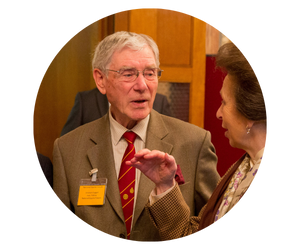
Prof Graham Suggett OBE JP DL
Hon Fellow, National Equine Forum
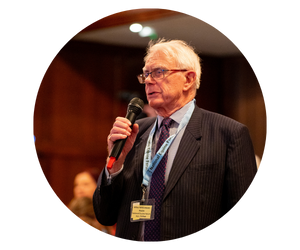
Miles Williamson-Noble
Hon Fellow, National Equine Forum
Click to read more ...
Prof Graham Suggett OBE JP DL
Hon Fellow, National Equine Forum
In the 1970s Graham was very concerned that young people who wanted a career with horses were not recognised for grant aid and there was no specialist course provision. On becoming Principal of Warwickshire College in 1975, launched the first dedicated full-time Further Education course in equine management. This initiative developed into the first UK degree course.
Other colleges followed their example with many Warwickshire College graduates being recruited as their staff. Many colleges and universities now offer mainstream equine courses and Graham has become known as the ‘father of horse courses’.
On his retirement, Graham became the British Equestrian Federation’s Director of Equine Development & Breeding, Chairman of the National Equine Database and Administrator of the National Equine Forum.
Thirty years on, Graham presents a short film on how NEF came about, the personalities involved and the colourful story of its origins.
Miles Williamson-Noble
Hon Fellow, National Equine Forum
With a background in aeronautics, Miles followed a career as a Royal Air Force Engineer Officer. On his retirement he took on the role of Registrar and Secretary of the Farriers Registration Council (FRC). Whilst at the FRC he was invited to join the Organising Committee of the National Equine Forum.
When Graham Suggett stood down as Forum Administrator, Miles volunteered to take on the role and continued until he became High Sheriff of Rutland and handed over to Georgina Crossman. He now represents the views of Rutland residents to those responsible for health and social care in the county.
Miles takes part in the short film about the history of NEF.
WORKFORCE SUSTAINABILITY IN THE EQUINE SECTOR
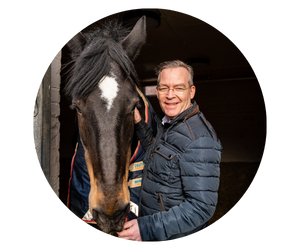
James Hick
Chief Executive, The British Horse Society
Click to read more ...
James joined the BHS in 2019, and since then has been leading the team to continue its support of the equine industry across its charitable aims of Welfare, Education, Access, Safety & Participation. Collectively, the Society’s 119,000 Members, 1,100 Volunteers, 3,000 Accredited Professionals and 600 Approved Centres are driving up standards, promoting equine welfare, safe off-road access, and safety, whilst increasing participation and encouraging more people and communities to become involved with equestrianism; both recreationally and professionally.
Aside from furthering the BHS’s charitable efforts and being a member of the NEF Organisation Committee, James is also a Director of The British Horse Council, and a member of the Equine Infectious Disease Surveillance Oversight Committee.
James will chair our themed session about Workforce Sustainability in the equestrian sector.
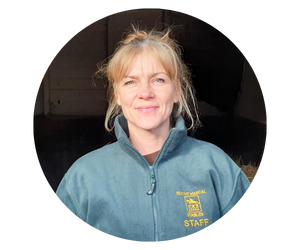
Alison Window
Owner and Proprietor, Mount Mascal Stables
Click to read more ...
Alison’s parents founded Mount Mascal Stables, a riding school and livery yard in Kent. During her childhood, Alison was a keen rider but after a life changing riding accident at 16, she decided to go her own way, graduating from Leeds University and working in London.
Alison returned to Mount Mascal in 2000 to help her father and has been running the family business since. She has expanded the site and today runs two ‘highly commended’ BHS/ABRS approved livery yards and the riding school – achieving a 5-star licence rating. Her yards are home to 90 liveries and 40 in the riding school herd. The premises includes a large Pony Club Centre offering riding school sessions from beginner upwards for all ages and a broad range of livery services.
As Covid-19 took hold, Alison’s husband joined the company to support her and their young family, who are also keen equestrians. The business has 25 staff in a range of roles and under a variety of contractual arrangements, with training for everyone – volunteer helper level upwards. Despite successful efforts to diversify and innovate, she believes the existence of riding schools is under serious threat. Staff recruitment, development and retention present a huge challenge.
Alison will be part of the Workforce Sustainability discussion.
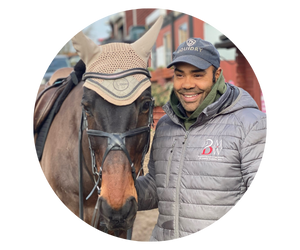
Ben Mitchell Winter
General Manager & BHS Coach, Littlebourne Equestrian Centre
Click to read more ...
Ben first joined the team at Littlebourne in 2005 as a senior instructor and assistant yard manager. He has been involved with the growth of the business, helping develop Littlebourne into the first-class establishment seen today. Ben is the founder of the centre’s Pony Club and organiser of numerous events and activities for riding school clients.
Ben moved to the Middle East to run an equestrian resort, returning every summer to lead Pony Club Camp. In 2018, he returned to Littlebourne as full time General Manager, overseeing the day to day running of the establishment and taking responsibility for the welfare of all the horses.
Ben is a popular instructor, having extensive experience teaching riders of all abilities. His speciality is show jumping and coaching Pony Club. He is leading on the future plans for the centre and is currently training towards his Stage 5 Stable Manager qualification. Ben is also a Ride Safe Trainer at Littlebourne and has attained his BHS Stage 3 Coach in Complete Horsemanship, BHS Stage 4 Senior Coach, BHS Stage 4 Senior Yard Manager, Stage 4 Senior Lunge qualifications.
Ben will be part of the Workforce Sustainability discussion.

Lucy Katan
Executive Director, British Grooms Association & Equestrian Employers Association
Click to read more ...
Lucy has been the leading voice in the equestrian industry for both grooms, and the much-needed improvement of employment standards, since 2003 when she made a poignant speech at the National Equine Forum.
As founder of the BGA and the EEA, Lucy has dedicated many years to providing support for grooms and employers.
Lucy has built the two bodies to become respected professional membership organisations, which are tasked with improving the working environment and increasing professionalism for all.
With over 3,500 members from all sectors of the equestrian industry, both organisations are growing and leading the change to see horse the industry become a place of Good Employment.
Lucy works on major events in her spare time, including the G7 Summit and COP26 in 2021.
Lucy will talk about the challenges of the national minimum wage raise in April 2022 and the impact on the viability of yards which are looking keep the horse world as an appealing place to work and continuing to drive up standards of equine welfare.

Linda Greening
Head of Inclusivity, Hartpury University
Click to read more ...
Linda graduated from Hartpury College (University of the West of England) with a BSc (Hons) Equine Science, completed her Masters there in in 2006 and then joined as a junior lecturer. She has delivered and developed equine behaviour and welfare curriculum up to postgraduate level and overseen related research projects and publications.
In 2009, Linda was promoted to senior lecturer themed around widening participation and in 2016, she was promoted to Head of Inclusivity, enabling her to pursue her interests in equality, diversity and inclusion within Higher Education, and the equine and allied industries.
As Access and Participation Plan lead, she has developed and overseen local and national outreach activity and programmes of activity designed to raise aspirations, awareness and confidence around applying to higher education. These activities are delivered to groups that historically have been considered non-traditional university applicants. Linda’s role also involves evolving culture and policy to ensure that these students feel welcome and can access opportunity in the same way as majority group students when they enrol.
Linda will tell us about collaborative action between groups within the equine industry and how it can positively enhance participation in the future.

Zoe Elliott
Head of Careers Marketing & Recruitment, British Horseracing Authority
Click to read more ...
Zoe has over 25 years’ experience as a sales and marketing professional, working for a variety of governing bodies, trade associations, charities and commercial organisations in the sports and equine sector.
She graduated in 1996 with an Equine Business Degree from Coventry University/Warwickshire Agricultural College and went on to gain a Postgraduate Diploma in Marketing.
In her role at the British Horseracing Authority, she is heading up a national Careers Marketing Strategy, representing all sectors of the racing industry and is responsible for careersinracing.com.
Zoe was a founding board member of the British Grooms Association. She is currently a board representative at the Pony Racing Authority and the military career transition charity Highground, supporting former military people into rural careers. She is a member of the Diversity in Racing Steering Group.
Zoe will talk about supporting people through careers in racing.
EQUINE ANTHELMINTIC RESISTANCE: A COLLECTIVE RESPONSIBILITY

Dr Pat Harris
Vice Chair, National Equine Forum
Click to read more ...
Pat qualified from the University of Cambridge Veterinary School in 1983 and completed her PhD at the Animal Health Trust into the Equine Rhabdomyolysis Syndrome. She joined the Waltham Centre for Pet Nutrition (now Waltham Petcare Science Institute) in 1995.
As Director of Science for Mars Horsecare and Head of the WALTHAM™ Equine Studies Group she is responsible for their equine research conducted in collaboration with experts at institutes and universities globally. This provides the science behind the SPILLERS™, BUCKEYE™ Nutrition and WINERGY™ brands. She is also a scientific advisor to MARS™ EQUESTRIAN.
Pat is a European Specialist in Veterinary Clinical and Comparative Nutrition, a RCVS recognised specialist in veterinary clinical nutrition (equine) and a British Equine Veterinary Association Past-President. She is also a member of several boards and holds a number of academic posts within institutions around the world.
She lectures internationally on nutrition as it affects the health, welfare, behaviour and performance of the horse. She is the author or co-author of over 500 scientific papers, abstracts and book chapters with recent emphasis on obesity, laminitis and senior horse nutrition.
Pat will chair the Anthelmintic session and announce the Sir Colin Spedding Award finalist and winner.

Dr Claire Stratford
Head of the Efficacy Team & Anthelmintic Policy Lead, Veterinary Medicines Directorate
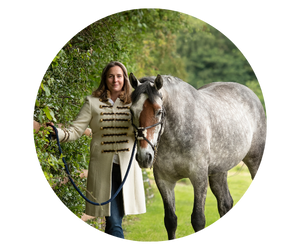
Dr Alison Pyatt
International Programme Manager & Training Centre Lead, Veterinary Medicines Directorate
Click to read more ...
Dr Claire Stratford
Head of the Efficacy Team & Anthelmintic Policy Lead, Veterinary Medicines Directorate
Dr Claire Stratford heads the VMD’s efficacy team, responsible for assessing target animal safety and efficacy data for the authorisation of veterinary medicines. She leads the VMD’s anthelmintic resistance activities, establishing working groups, sponsoring research, and sits on the Sustainable Control of Parasites in Sheep steering committee.
Claire previously worked as an equine vet in first opinion and referral practices and completed a residency in equine internal medicine at the University of Edinburgh. She conducted research into anthelmintic use and efficacy in horses with the Moredun Research Institute.
Claire will provide an update on the VMD’s recent activities to initiate stakeholder engagement to tackle the critical problem of anthelmintic resistance in horses.
Dr Alison Pyatt
International Programme Manager & Training Centre Lead, Veterinary Medicines Directorate
Dr Alison Pyatt oversees an innovative portfolio of training, international activities, and capacity building in the veterinary medicine regulatory sphere at the VMD.
She co-chaired the VMD’s recent equine anthelmintic stakeholder workshop.
Dr Pyatt holds a doctorate in Veterinary Services, is an experienced academic, and a visiting lecturer in professional veterinary services.
Alison will provide an update on the VMD’s recent activities to initiate stakeholder engagement to tackle the critical problem of anthelmintic resistance in horses.
The VMD hosted an Equine AR Stakeholder Workshop in November 2021, convening stakeholders from across the UK equine sector to discuss the core problems associated with AR in horse parasites, and potential ways forward. Delegates attended from over 30 different organisations and agreed that a co-ordinated approach is essential, through formation of a pan-industry equine group. More information can be found here.
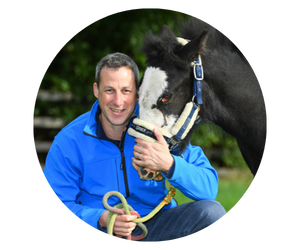
David Rendle
President Elect, British Equine Veterinary Association
Click to read more ...
David graduated from The University of Bristol in 2001 and has worked as a specialist in equine medicine for virtually all of his career.
He has published and presented on a range of internal medicine topics but is particularly interested in equine endocrinology, gastroenterology, respiratory disease, therapeutics and the issues associated with antimicrobial and anthelmintic resistance.
David was elected to the council of the British Equine Veterinary Association in 2018 and now chairs their health and medicines committee in addition to being President Elect.
David will talk about the responsibility of vets in managing anthelmintic resistance.
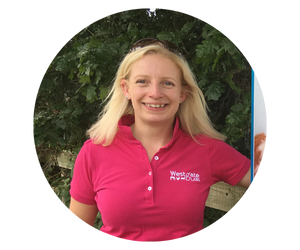
Claire Shand
Marketing Director, Westgate Labs
Click to read more ...
Claire Shand is an experienced Equine Registered Animal Medicines Advisor (RAMA) and Marketing Director in her family’s business, Westgate Labs, an award winning veterinary laboratory specialising in parasite control for horses. Westgate has led the way in providing and promoting targeted parasite control measures for horses since 1999. It supports owners, vets and professionals in managing this important aspect of horse health and implementing best practice measures to slow resistance to key medicines.
A horse owner herself, Claire understands the practical considerations of implementing test-based programmes and is passionate about driving behaviour change to make a lasting difference to horse health.
Claire has extensive marketing and communications experience in the equestrian industry where she previously headed up marketing teams for Badminton Horse Trials, British Equestrian and British Dressage and worked as Press Attaché for Equestrian Teams at the London 2012 Olympic and Paralympic Games. A keen environmentalist, Claire has driven projects to develop compostable packaging at Westgate. In her spare time, she can be found walking or riding their farm’s rewilding project or painting wildlife in watercolour.
Claire will speak about the role of Registered Animal Medicines Advisors (Suitably Qualified Persons/SQPs) in managing anthelmintic resistance.

Sara Jerman
Assistant Centre Manager (Glenda Spooner Farm, Somerset), World Horse Welfare
Click to read more ...
Sara has had a lifelong passion for horses and started her working life by qualifying as a riding instructor, working in and managing a successful riding school for 12 years before branching in to freelance teaching for private clients and Pony Club.
She moved to Somerset, following a change of career to equine welfare with World Horse Welfare at Glenda Spooner Farm. She was promoted to Assistant Centre Manager in 2020 and now oversees a team of staff and the care of up to 100 equines as well as being involved with a busy visitor centre. She has participated in presentations for the charity at open days and supported the Head Office team at events such as Badminton and Burghley.
Sara coordinates the rehoming of equines at the centre as part of World Horse Welfare’s rehoming scheme. Along with the support of the centre’s vets, she has set up a specific worming protocol for the horses at Glenda Spooner Farm and advises rehomers on the importance of “strategic worming programmes”.
Sara is part of the Anthelmintic session panel discussion.
MEMORIAL LECTURE
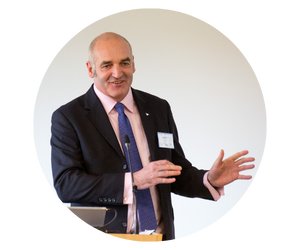
Tullis Matson
Founder & Managing Director, Stallion AI Services
Click to read more ...
Tullis formed Stallion AI Services to offer semen collection services, fertility assessment and worldwide semen export. He develops new techniques, such as post castration and epididymal sperm harvesting, specialising in handling and collection from sub fertile stallions. He has carried out research into semen collection, stallion fertility and cryopreservation methods of equine semen and embryos. He works closely with Chester Zoo to cryopreserve semen from endangered species and has supported elephant tissue collection and storage in South Africa.
The team recently foaled the first Suffolk Punch foal in the UK to have been born using sex-sorted semen. This technology is a major step towards securing the future for all critically endangered breeds.
More recently, Tullis has been working on his idea to create a cryopreservation biobank in the UK which specialises in storing living regenerative material from animal species threatened with extinction. From this idea the charity, Nature’s SAFE, was born. It is a living biobank on a mission to save animals from extinction by indefinitely preserving live cells from endangered species.
Tullis will be looking back at how breeding technologies have changed over the last 30 years and suggesting opportunities for the future.
Corporate Friends
Dodson & Horrell
Jeffress Scholarship Trust
Neue Schule
SEIB Insurance Brokers
Weatherbys ePassport
Friends
The 826 Equine Studbooks Association
The Arab Horse Society
Central Prefix Register
Cob Care
James Rayner
The Lipizzaner Society of Great Britain
Lorna Cameron
Siobhan Dillon
Traditional Gypsy Cob Association
Venn Mediation UK – Equine
West Kington Stud
The Worshipful Company of Farriers
